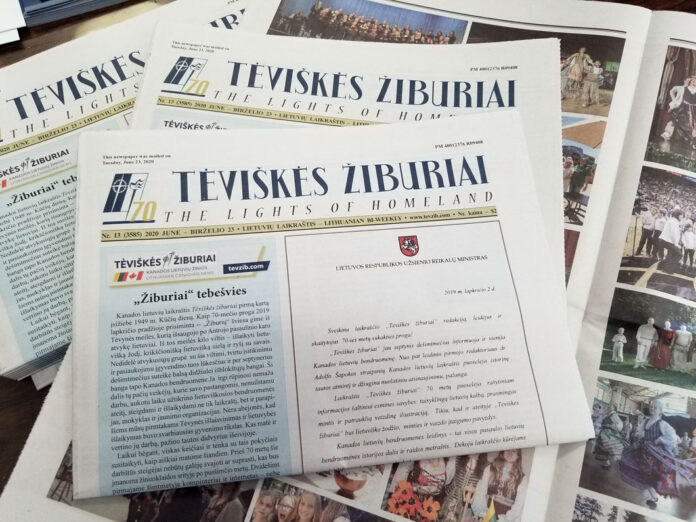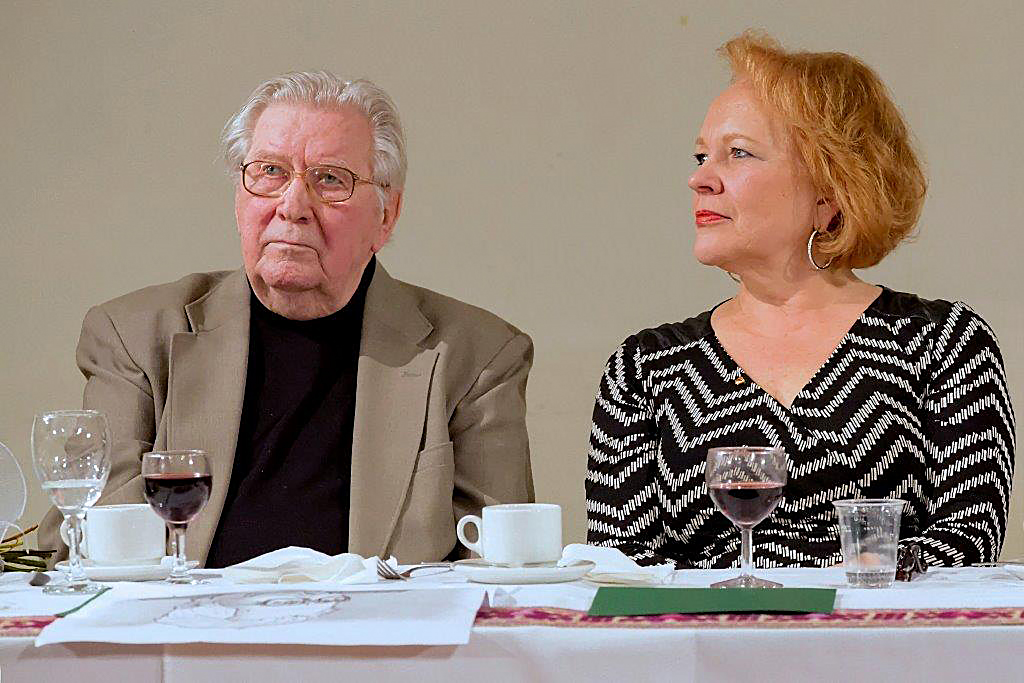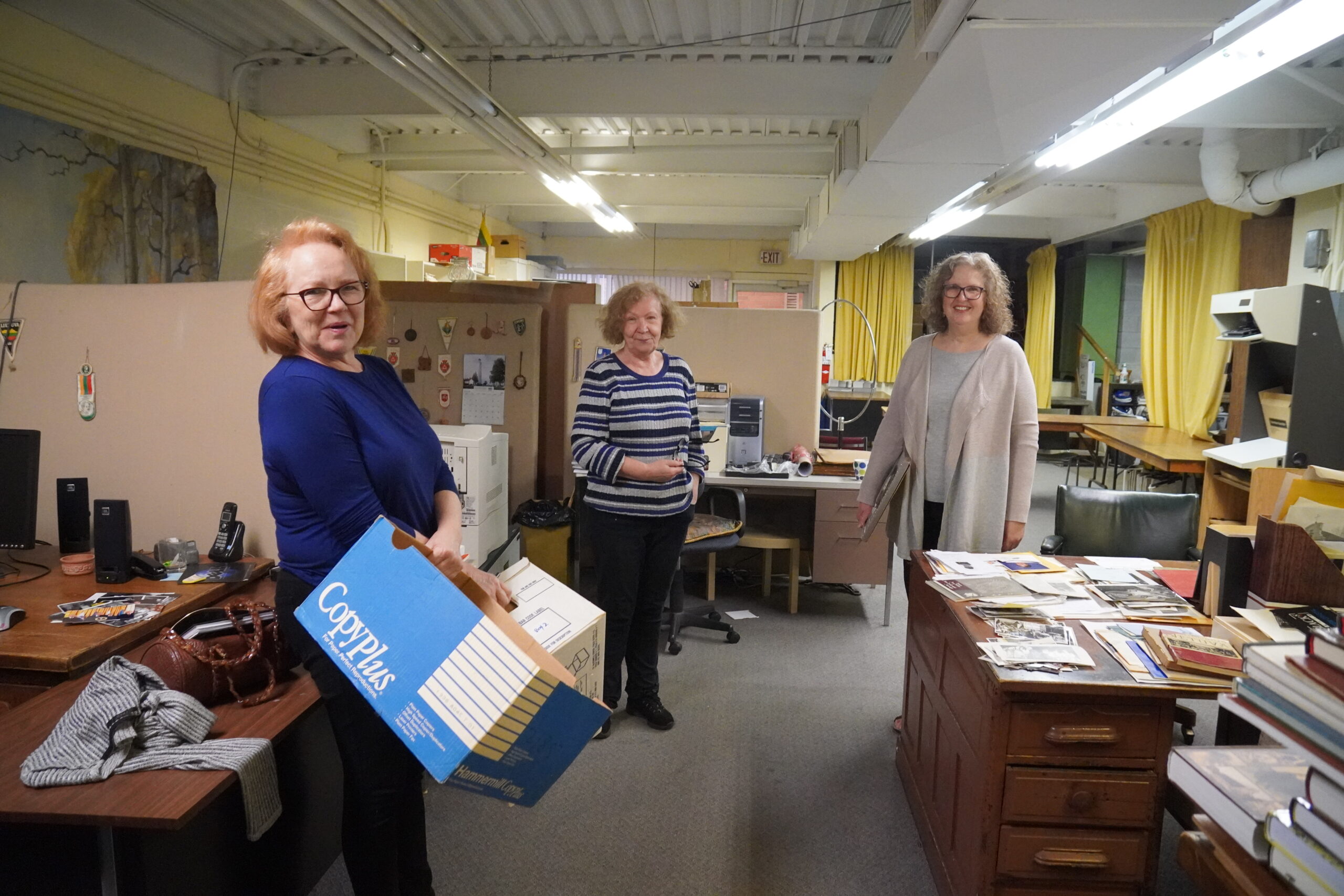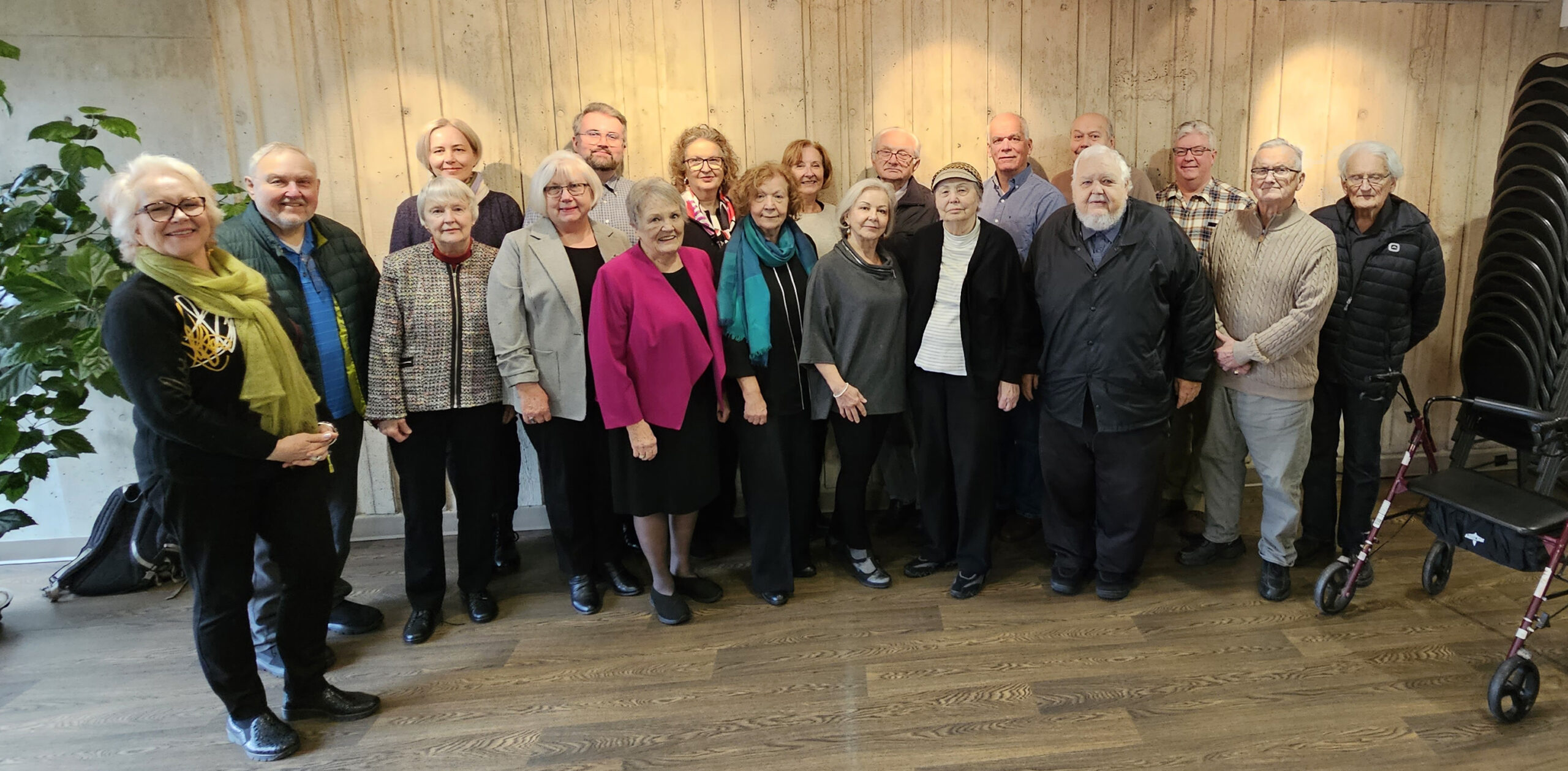
The year 2000 heralded ever more innovations and changes, both world-wide and local, at an incredible pace. The harrowing Y2K prognoses of an apocalypse were not fulfilled, but in two quick decades the march of time and the advent of the internet began to take its toll on both Lithuanian communities and the newspaper.
Subscriptions were falling at the average rate of over 200 per year. The quest for wider readership was a constant task for the board of publishers. Subscription campaigns, personal and printed incitement to read the weekly and gift it to relatives, as well as trial subscriptions were employed.

A website was created by layout designer Vida Tumosienė, but proved to be an entire additional job eventually given to an outside designer. Even so, content had to be written in-house. Later, Andrea Benotas took on creating content, but that too needed full-time attention. In the meantime, articles written for the newspaper were becoming more scarce. Some still came from like-minded authors in Lithuania. The original policy based on volunteer contributors and minimal salaries for staff was stretching very thin. The old reliable authors were gone, and the only non-staff regulars were paid tiny honoraria for sending memoirs or commentary on issues that were no longer relevant to the average Lithuanian-Canadian reader. New immigrants naturally expected to be paid, were surprised to have their articles edited so “thoroughly“ for style, and growing up in the anti-religious Soviet occupation, some were uncomfortable with the Catholic orientation of the weekly.

In Canada, Lithuanian events grew less frequent. Younger generations were moving away from small communities and losing interest in their Lithuanian heritage. It was much easier to maintain it in larger communities, such as Toronto, Montreal and Hamilton. But as their elders aged out, very few stepped up to continue the old organizations, and they found it too difficult to write activity reports in Lithuanian.
The initial excitement about internships, aid programs and exchanges in Lithuania, as well as visits from its politicians and performers began to wane. Finally, there was no longer a concrete cause to champion in the diaspora. Formerly a voice for those who could not speak behind the Iron Curtain, the diaspora suffered an identity crisis in aging communities. The internet provided instant news, globally, and as organizations began to design their own websites, the newspaper lost its role as the “go-to“ source of both local and wider news.

As the number of contributors and subscribers fell, postal and printing costs kept rising. Heritage Canada provided a stipend to ethnic newspapers to help cover mailing expenses, and community institutions – foundations and credit unions also faithfully donated several thousand dollars per year. Minimal though they were, salaries still took up a high percentage of expenses. The number of generous long-standing donors declined and the solid backing they had provided was not renewed in the younger generation. Bequests became more rare, and the newspaper’s “bottom line“ was more discouraging every year.
Retirements began in 2015, with layout designer Vida Tumosienė, who had successfully brought the newspaper into digital format in January 2005. Veteran pre-press assistant Genė Karasiejus-Gaižutis was in charge of layout until that time, having weathered all the changes and continued to work until 2016. Later that year Česlovas Senkevičius and Ramūnė Jonaitienė retired, and 10-year free-lance contributor Sigina Katkauskaitė, an experienced journalist, took the helm, with administrator Aušra Trussow and layout designer Akvilė Minkevičienė, who was also webmaster for tevzib.com.

With annual losses continuing to sadden the bottom line, the Board decided to publish on a bi-weekly basis, but the solution was only temporary. By 2020 the remaining funds could only sustain publishing online, which required a new approach. Charging readers to access the website was deemed unlikely to succeed.
Finally – the “numbers“ spelled out the closing chapter of the newspaper‘s odyssey. The financial situation became untenable. Analysis of online readership statistics, for example, in April, 2024, showed an average of 78 visitors to the website (for both English and Lithuanian posts). For these reasons, the non-profit corporation directing the operation of the website tevzib.com is closing as of June 30, 2024. It was an entirely viable entity as a non-profit with a mission to further Lithuanian causes and provide information to the Lithuanian public, but the corporation itself is not designed for the challenges of today.
The effort to maintain an important institution in the Lithuanian Canadian community for many years has been valiant. Seventy-five years in all. A lifetime, encompassing several generations, and the history of a diaspora in Canada. 2016-01-06-TEVISKES-ZIBURIAI 52016-07-26-TEVISKES-ZIBURIAI 7





























